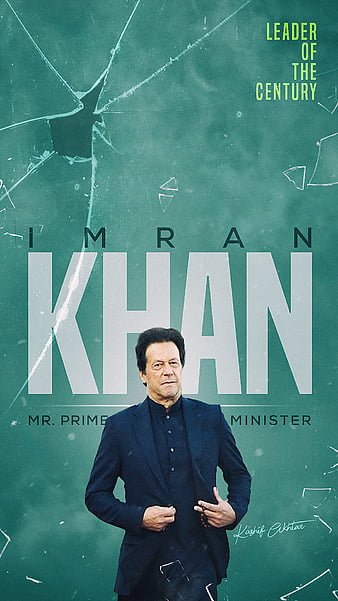Imran Khan: From Cricket Legend to Political Icon – A Detailed Profile


Early Life and Education
Imran Ahmed Khan Niazi was born on October 5, 1952, in Lahore, Pakistan. He hails from a Pashtun family of the Niazi tribe. Imran received his early education at Aitchison College in Lahore before moving to the United Kingdom, where he attended the Royal Grammar School in Worcester. He later pursued higher education at Keble College, Oxford, where he studied Philosophy, Politics, and Economics, graduating in 1975.
Cricket Career
Imran Khan is internationally renowned for his illustrious cricket career. He made his debut for the Pakistan national cricket team in 1971 at the age of 18. Over the next two decades, he became one of the greatest all-rounders in the history of cricket.

Achievements:
- Captaincy: Imran Khan captained the Pakistan cricket team from 1982 to 1992. His leadership was instrumental in Pakistan’s historic win in the 1992 Cricket World Cup, a victory that remains a pinnacle of his cricketing career.
- Statistics: He played 88 Test matches, scoring 3,807 runs and taking 362 wickets. In One Day Internationals (ODIs), he played 175 matches, scoring 3,709 runs and taking 182 wickets.
Transition to Politics
After retiring from cricket in 1992, Imran Khan transitioned to politics. In 1996, he founded the political party Pakistan Tehreek-e-Insaf (PTI), which translates to Pakistan Movement for Justice.

Political Journey:
- Early Struggles: PTI faced numerous challenges in its initial years, struggling to gain significant political traction. However, Imran Khan’s persistent efforts and his advocacy for anti-corruption and justice gradually gained him a dedicated following.
- Election Success: The turning point came in the 2013 general elections, where PTI emerged as a significant political force, becoming the second-largest party by popular vote.
- Prime Minister: In the 2018 general elections, PTI won the majority of seats in the National Assembly, and Imran Khan was sworn in as the 22nd Prime Minister of Pakistan on August 18, 2018.
Policies and Governance
As Prime Minister, Imran Khan focused on several key areas:
- Anti-Corruption: He launched extensive anti-corruption campaigns, aiming to bring accountability and transparency to the government.
- Economic Reforms: His government implemented economic reforms to stabilize Pakistan’s economy, including seeking assistance from the International Monetary Fund (IMF).
- Social Welfare: Imran Khan introduced various social welfare programs, such as the Ehsaas Program, aimed at alleviating poverty and supporting underprivileged communities.
- Foreign Policy: He sought to strengthen Pakistan’s international relations, emphasizing peace and cooperation with neighboring countries.

Personal Life
Imran Khan has been married three times. His first marriage was to Jemima Goldsmith in 1995, with whom he has two sons, Sulaiman Isa and Qasim. They divorced in 2004. He later married journalist Reham Khan in 2015, but the marriage ended in divorce the same year. In 2018, he married Bushra Bibi.

Beyond politics and cricket, Imran Khan is also known for his philanthropic efforts. He founded the Shaukat Khanum Memorial Cancer Hospital & Research Centre in memory of his mother, and Namal University, which aims to provide quality education to the underprivileged.
Legacy and Impact
Imran Khan’s journey from a cricketing legend to a political leader is a testament to his resilience and dedication to Pakistan. His contributions to sports, philanthropy, and politics have left an indelible mark on the nation’s history.
In summary, Imran Khan’s life story is one of passion, perseverance, and unwavering commitment to his country. Whether on the cricket field or in the political arena, he has consistently strived to uplift and serve the people of Pakistan.





